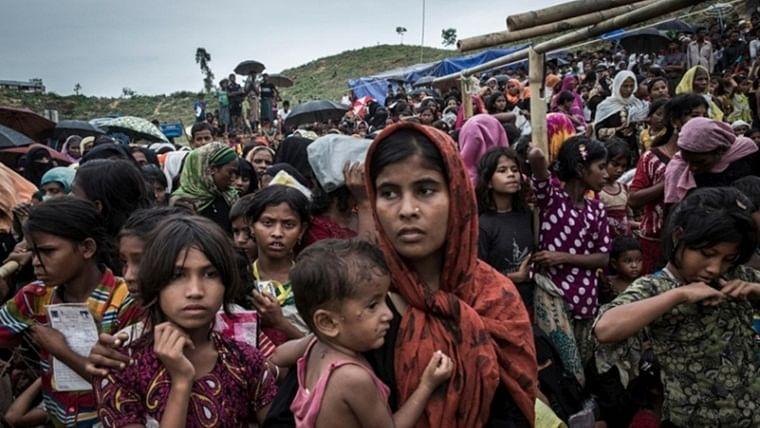Art 370: How West Pakistan Refugees Were Let Down

Representational Image. Image Courtesy: Free Press Journal
Last August, the Prime Minister and several Union ministers justified the decision to abrogate Article 35-A and some provisions of Article 370 on the pretext that it would grant equal rights to groups that had been denied fair treatment by the erstwhile state of Jammu and Kashmir. Most important of these groups is the West Pakistan Refugees, or WPRs, who were prevented by the state from voting in local body and Assembly polls, denied state government jobs, and a number of other privileges.
The WPRs had migrated from Sialkot region of West Pakistan during 1947 and settled mostly in Jammu, Kathua and Samba districts of the former state. They were denied Permanent Resident Certificates (simply called citizenship) and various other rights in semi-autonomous Jammu and Kashmir, which had a separate Constitution as well as laws governing citizenship.
The separate Constitution was nullified on 5 August 2019, and in the first week of April this year, the Union Home Ministry issued an order granting “domicile rights” to several communities, including WPRs. The decision was portrayed as an end to the injustices perpetrated upon them by the allegedly Kashmir-centric state governments since 1947.
But on 1 September, the Principal Secretary of the Revenue department of the newly carved out Union Territory of Jammu and Kashmir, Pawan Kotwal, said, “The domicile certificate is for applying for jobs in Jammu and Kashmir...it does not confer [the] right to buy land at the moment. Separate rules will be needed to cover the issue of land rights”. The revenue secretary also said that those holding domicile certificates would not be automatically included in the voters’ list in the Union Territory either.
These statements came against the backdrop of voices of opposition from the Kashmir region against what are being seen as attempts by the Bhartiya Janta Party government to change the demography of what was India’s sole Muslim-majority state, Jammu and Kashmir.
The Principal Secretary’s intelligently-crafted statements have deep political connotations: it can be inferred from them that the fight of the WPRs, who have been victimised and deprived of voting and land rights, is far from over. And that the WPRs are now officially entitled to get merely domicile certificates, which are only relevant for securing a government job. The domicile right in the present avatar, is not making these WPRs voters in local body or Assembly elections or legal owners of the small land parcels they possess.
By implication, despite the changed status of Jammu and Kashmir, in the absence of new land laws, the old mode of registration of land is still prevalent, which means the PRC remains an official requirement for land registration. Hence, the reading down of the Constitution might have got the WPRs a domicile certificate in Jammu and Kashmir, but without PRCs, they are still unable to register lands in their name.
As per Union Ministry of Home Affairs submissions, 5,764 families of WPRs consisting of 47,215 persons had migrated in 1947. The Jammu & Kashmir government had rehabilitated the families by giving them a few kanals to 4 acres land, but without granting ownership rights to the land. Their present population is officially unknown but the West Pakistan Refugee Action Committee (WPRAC) estimates that the number of families swelled to around 20,000, with around one lakh members in all.
In view of this ambiguity over their actual numbers, and how many WPRs were actually deprived of citizenship and other rights in Jammu and Kashmir, media reports of the past few months that shed some light on the intricacies of the WPR issue need to be taken into account. A report published on 24 January in The Indian Express says the Union government’s scheme to provide one time financial assistance of Rs.5.5 lakh each to 5,764 WPR families settled in J&K in 1947, “failed to attract a single applicant”. The report maintains that a large number of WPRs have got PRCs as well as jobs in Jammu and Kashmir government, which is why they did not come forward to claim the financial package. Another report published in The Wire on 10 March says the Union Home Ministry admitted before the Rajya Sabha Parliamentary Standing Committee on Home Affairs that it had shelved a Rs.200 crore relief package for WPRs. The reason was that the Union government had not received any authentic claims from the state government.
In light of these reports and the statement of the Revenue Secretary, there appear to be deep chinks in the theory—propounded by some politicians to further political goals—of the victimisation and denial of rights to WPRs.
One explanation could be that if a large number of WPRs have been enjoying citizenship rights even before revocation of Kashmir’s special status, then they would also possess voting rights and own lands. Such people would have no reason to object to the statements of the Revenue Secretary. The fact that the leaders of the WPRs have not objected to the statements either suggests this proposition is true. Nevertheless, it would be incorrect to completely reject the issues of WPRs.
To arrive at a nuanced understanding of the WPRs and their issues it would be essential to not view them as a homogenous group. Each refugee, family or individual, does not experience victimisation and deprivation—or enjoy privileges, if any—in equal measure. In reality, similar to all refugee groups across the world, WPRs are a heterogeneous group with class and caste divisions that directly impact the intensity of deprivation and victimisation. Seen in this light, those WPRs who could secure PRCs and/or state government jobs (even before the abrogation) are few, and belong to the higher pedestals of caste and class hierarchies. As in any social group, this section is also the most vocal, while their silence would mute the voices of the less fortunate WPRs. In other words, the better-off among WPRs were at a higher pedestal before 5 August, and there they have remained even after the abrogation.
The voices that do not end up being heard are of the large sub-group within WPRs who are actually deprived of rights. Even the struggle of a heterogeneous group should be multifarious. Otherwise, those at the lower echelon would remain deprived, unheard and unable to compete as fresh challenges emerge. This is most likely to happen in a region in tumult. Considering the major political developments since last August, taking into account this heterogeneity is a better approach to understand the issues of WPRs.
To grasp the extent of deprivation or problems of any community, and for the government to devise any policy for them, the foremost requirement is determining the exact number of the affected. Yet, so far, the self-proclaimed champions of the interests of WPRs have failed to start this process, although the BJP leadership claims to have done away with the injustices they face.
It appears that keeping ambiguous the exact number of WPRs, and those who had got lands registered in their names and government jobs before August 2019, is deliberate—it helps the present dispensation legitimise their unilateral steps taken on 5 August. This ambiguity is detrimental for those WPRs who are real victims of injustice, deprivation and denial of rights. This anonymous victimised population has so far simply got domicile rights, which can lead to government jobs that are already scarce in Jammu and Kashmir. Even if some jobs will be advertised, the socially and economically backward WPRs would be unable to compete with the far more qualified domicile status holders from other states, who have enjoyed all privileges including access to higher education.
The government needs to devise a special economic and employment package for the actual victims, for which it needs to first ascertain their numbers and extent of deprivation. Yet, when ambiguity is more beneficial to the dispensation than the truth, then ambiguity will prevail and so will a life of victimhood for the WPRs.
The author is research scholar at the Centre for Political Studies, JNU. The views are personal.
Get the latest reports & analysis with people's perspective on Protests, movements & deep analytical videos, discussions of the current affairs in your Telegram app. Subscribe to NewsClick's Telegram channel & get Real-Time updates on stories, as they get published on our website.
























